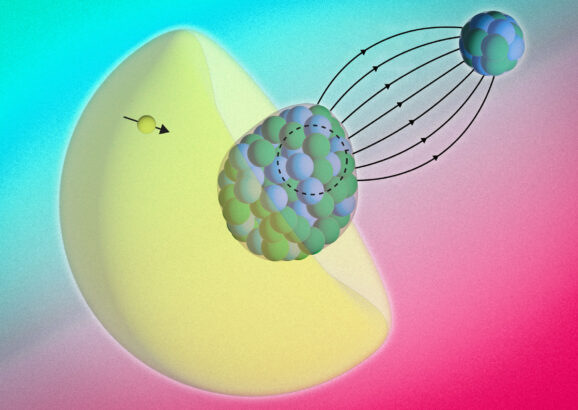Ronald Fernando Garcia Ruiz
Research Interests
His research actives are focused on the development of laser spectroscopy techniques to investigate the properties of subatomic particles using atoms and molecules made up of short-lived radioactive nuclei. His experimental work provides unique information about the fundamental forces of nature, the properties of nuclear matter at the limits of existence, and the search for new physics beyond the Standard Model of particle physics.
Biographical Sketch
Dr. Ronald Fernando Garcia Ruiz is an Assistant Professor at the Department of Physics at MIT. His research actives are focused on the development of laser spectroscopy techniques to investigate the properties of subatomic particles using atoms and molecules made up of short-lived radioactive nuclei. His experimental work provides unique information about the fundamental forces of nature, the properties of nuclear matter at the limits of existence, and the search for new physics beyond the Standard Model of particle physics.
Ronald grew up in a small town in the Colombian mountains. As a teenager he moved to Bogota, where he obtained a bachelor’s degree in physics in 2009 at Universidad Nacional de Colombia. After earning a Master’s degree in Physics in 2011 at Universidad Nacional Autónoma de México, he moved to Belgium to start his PhD degree at KU Leuven. Ronald was based at CERN during most of his PhD working on laser spectroscopy techniques for the study of short-lived atomic nuclei. After his PhD, he became a Research Associate at The University of Manchester (2016-2017). In 2018, he was awarded a CERN Research Fellowship to lead the local CRIS team. At CERN, he has led several experimental programmes motivated by modern developments in nuclear science, atomic physics and quantum chemistry.

With a new molecule-based method, physicists peer inside an atom’s nucleus
An alternative to massive particle colliders, the approach could reveal insights into the universe’s starting ingredients.
Awards & Honors
- 2025 // Buechner Award for Undergraduate Advising (MIT)
- 2024 // Appointed Thomas A. Frank Career Development Professor
- 2023 // Popular Science “Brilliant 10”
- 2023 // Sloan Research Fellow
- 2022 // Stuart Jay Freedman Award in Experimental Nuclear Physics (APS) "For novel studies of exotic nuclei using precision laser spectroscopy measurements, including the first spectroscopy of short-lived radioactive molecules."
- 2022 // IUPAP Young Scientist Prize in Nuclear Physics
- 2021 // National Academic Award in Science, Alejandro Angel Escobar Prize, Colombia
- 2020 // DOE Early Career Research Award
- 2020 // Facility for Rare Isotope Beams (FRIB) Visiting Scholar Award
- 2020 // Gordon and Betty Moore Foundation Fundamental Physics Innovation Convening Award (Nov 2019) (APS)
- 2019 // MISTI Global Seed Fund award
- 2018-19 // CERN Research Fellowship. CERN, Switzerland
- 2018 // IOP Nuclear Physics Group Early Career Prize, UK
- 2018 // Best PhD Thesis prize (period 2015-2017), Nuclear Physics Division of the European Physical Society (EPS)
- 2011-15 // PhD scholarship, KU Leuven, Belgium
- 2009-11 // Graduate Studies Fellowship, National Congress of Sci. and Tech. CONACYT, Mexico
- 2008 // Summer student scholarship, ORNL, USA
- 2006-09 // Undergraduate fellowship, Department of Physics, Univ. Nacional de Colombia
Key Publications
-
Vernon, Garcia Ruiz et al. “Nuclear moments of indium isotopes reveal abrupt change at magic number 82”. Nature 607, 260 (2022).
-
Koszorús et al. “Charge radii of exotic potassium isotopes challenge nuclear theory and the magic character of N 32”. Nature Physics 17, 439 (2021)
-
Garcia Ruiz et al. “Spectroscopy of short-lived radioactive molecules”. Nature 581, 396 (2020).
-
Groote et al. “Measurement and microscopic description of odd–even variations of charge radii of exotic copper isotopes”. Nature Physics 16, 620 (2020).
-
Garcia Ruiz et al. “Unexpectedly large charge radii of neutron-rich calcium isotopes”. Nature Physics 12, 594 (2016).
